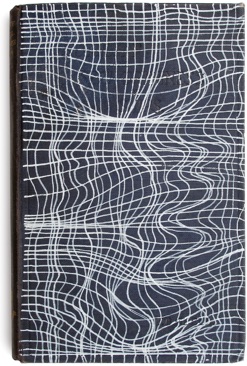Praise for this Book
1
Reading the work of _____________ , I feel like the slime on okra. I feel like the cerebrum inside a walnut, thinking of winter, thinking of being buried by rodents. Reading the poems of_____________ , I am both shower scum and political victory. I feel like a viceroy with all the official hats. Thrust into a river of black paint, each poem introduces itself as a foreign gentleman then proceeds to melt into my mother. I’m angry when I read the poetry of _____________ , angry at birds. In the poetry of_____________ , ninety-eight percent of the emotion is tied into the silence. Two percent is a sex moan heard through a motel wall.
In the poetry of _____________ , there is so much prologue it becomes prejudicial, like some pre-birth. It’s hard to say. It’s like a stickybeak old man comes in your jewelry store and tilts his head like a bird with one cataract-covered eye. You feel occluded from something very important while guarding gems. It’s a deep itch, until you’re all cramped and decoy, but then something bursts and you’re suddenly all river, motherland, and hearth.
To imagine the poetry of_____________ , imagine a funeral—traditional, black draped, maybe an aristocratic family in England. Everyone is somber and decorous, speaking in hushed tones. But in this universe all corpses dance. They stand up on the stage, head sagged, arms limp, swaying back and forth; and every mourner must take the stage and dance with the corpse and whisper the worst thing they have ever done in its ear.
2
The poetry of _____________ is like following a long orange extension cord through a forest only to realize it powers the smoke machine that the gods use before they appear.
Reading the poetry of _____________ , I feel the dark musculature of the horse. I feel the fat fondling of some goose. I feel the goat from the goat-perch perspective. I feel betitted as a mother hog on her side. I feel all the barnyard awake in the bright bake of fable. I feel child acoustic. I feel strummed. I feel the grass growing so fast after the summer rain, I think it prodigy or predictor. I sit on the tractor and it shakes me like a can of paint.
The poetry of _____________ is like that intense sleepiness in the middle of the day when you fall asleep on the couch with some innocuous show on in the background—golf, or a judge show—and then you’re out cold, drooling on the couch pillow. In a dream, you’re standing in a room that is very cold; maybe it’s a cell. One incandescent bulb emits the only warmth, so you put your hands up to it and notice something written on your hands in runes. The runes tell the story of when you were young and did something cruel to a friend on an October night in Indiana. Your friend was crying, and far in the distance, from across the neighborhood, you could hear the poetry of _____________ like your mother, calling you home.
3
In the poetry of _____________ , I’m always waking up just after the earthquake and looking for my beloved. Oh, did my beloved fall back into the earth? The poems only reply with trees, so many trees they form a canopy. So much real estate in the higher spheres. There is a whole separate ecosystem. And from this perch, what were our worries or loves anyway (thin as steam) when we consider the rain, the constant rain.
No one likes a police officer, but it’s not because we don’t like laws. Try living somewhere without laws for a while and you’ll understand. It is unnerving being that close to people’s natural violence. No, the reason we don’t like police officers is because the job attracts a certain type of person, a person that we say (colloquially) has a “chip on the shoulder,” a person who enjoys small powers a little too much. It’s easy to see that it compensates for some insecurity. Why would someone want to be the enforcer of laws if they didn’t feel a frightening lawlessness in themselves? This is the essence of the cop drama—the untamed impulse civilized by the moral code. But we like to see it unleashed at times, the cop gone maverick, the regression back to earlier codes of justice. The poetry of _____________ slams the badge on the table. The poetry of _____________ will take the law into its own damn hands.
The poetry of _____________ is the only one staying at this truck stop motel. There is one bent cigarette in the golden ashtray to prove it. The poetry of _____________ is the reason the sheets are stained and the television stuck on the Weather Channel, tinted green. There are storms over Kansas. The poetry of _____________ doesn’t build a shelter for the storm, it builds a psychology for the storm. It’s a tempest tantrum, and it fits in a coin.







































